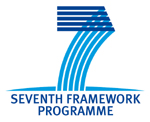|
New Developments in Health Metrics
Valencia, 25 June 2010 In collaboration with:  |
   |
Objectives
Recent literature (Atkinson Review, 2005) has brought forward the issue of how to measure productivity and value for money indicators in non-market services. Nevertheless, many conceptual and practical issues remain in attempting to apply the concepts in international comparatives. Being conscious of the problems faced, the OECD produced a Manual in 2009 providing guidance for measuring volume output of the two most important non-market services, education and health. The INDICSER project, funded by the 7th Framework Program, devotes a substantial effort to elaborating indicators for health and education performance. In this Workshop five contributions are being presented, dealing with problems posed by health metrics which will be addressed by the INDICSER project.
The conceptual issues that the project will deal with include the use of activities as output measures and what weights to employ to aggregate across activities; how outcomes might be combined with activities or other volume indicators to yield a quality adjusted output measure; how to account for innovations in service provision and to compare the use of productivity and value for money as performance indicators. Another issue of interest is to show how to use outcome data to quality adjust the activity-based output estimates. In order to properly estimate the effect of a treatment on the health of individuals one should go beyond traditional measures, such as survival rates and reductions in waiting times. This raises a number of issues, the first of which is the choice of metrics. On the one hand is the idea of DALYs (Disability adjusted life years), while on the other is the idea of using as a numeraire years in perfect health which gives rise to the idea of QUALYs (Quality adjusted life years). An intermediate approach is to treat as an output measure the so called “Disability-free Life expectancy” in which instead of computing broad life expectancies what is computed is the number of years without disabilities individuals can expect to live. In any case, if quality of life oriented measures are chosen, then we need to select among the available metrics devoted to quality of life evaluation.
Programme
FRIDAY 25 9:00–14:30
9:00 Welcome and opening session
9:15 – 10:00
“A cost-benefit analysis of cataract surgery based on the English longitudinal survey of ageing”
Martin Weale, National Institute of Economic and Social Research (NIESR)
10:00 – 10:45
“Metrics, Targets and Performance: The case of NHS Hospital trusts”
Mary O’Mahony, University of Birmingham
10:45 – 11:30
“Comparing price levels of hospital services across countries: results of a pilot study”
Paul Schreyer, OECD
11:30 – 12:00 Discussion
12:00–12:30 Coffee break
12:30 – 13:15
“Quality of life lost due to non-fatal road crashes”
Carmen Herrero, Universidad de Alicante and Ivie
Patricia Cubí-Mollá, City University London
13:15 – 14:00
“A European monetary value for the qal y: the eurovaq project”
José Luis Pinto, Universidad Pablo de Olavide
Angela Robinson, University of East Anglia
14:00 – 14:30 Discussion
Coordinator
Matilde Mas, Universitat de València and Ivie
Participants
Martin Weale, National Institute of Economic and Social Research (NIESR)
Mary O’Mahony, University of Birmingham
Paul Schreyer, OECD
Carmen Herrero, Universidad de Alicante and Ivie
Patricia Cubí-Mollá, City University London
José Luis Pinto, Universidad Pablo de Olavide
Angela Robinson, University of East Anglia
Venue
Universitat de València. Facultat d’Economia
Sala Sánchez Ayuso (first floor)
Avenida de los Naranjos, s/n - 46022 Valencia






